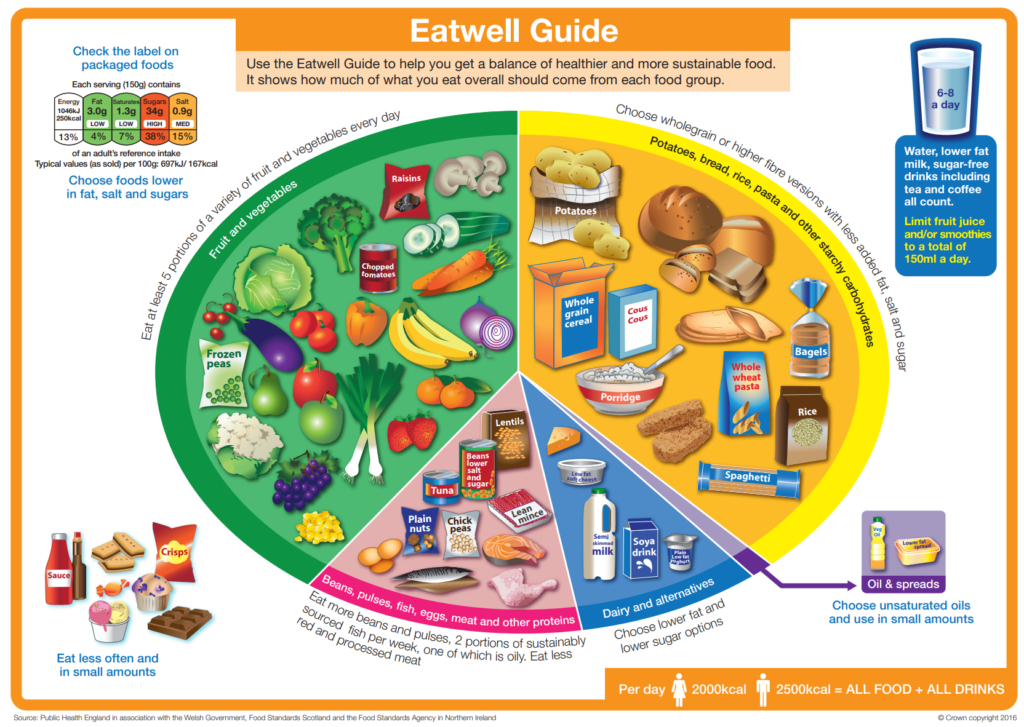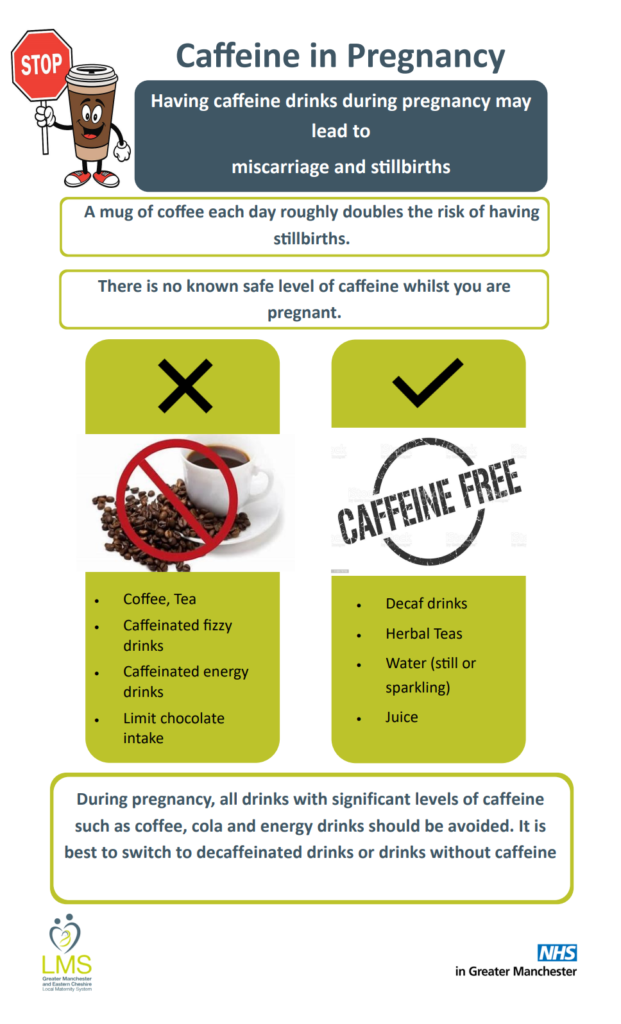In this section you will learn about nutrition and caffeine reduction.

We have previously discussed the importance of weight optimisation prior to conception as being overweight or underweight can reduce fertility and cause complications during the pregnancy.
We have acknowledged that these messages should be provided consistently, in a manner that is culturally appropriate and in a trauma informed way, recognising that reaching an ideal weight may take some time to achieve.
Most areas will have a local weight support programme to signpost to.
Many women are the main carer for the family and will be arranging the meals. Advice given to the woman about healthy eating is the same we should be encouraging the whole family.
The Eatwell Guide is a useful tool to help with advice about healthy eating or consider working with local schemes if culturally appropriate resources have been developed.

Other tips include:
Dispel common myths such as the need to ‘eat for 2’ during pregnancy.
And in women with a BMI > 30 refer to a GP for higher dose folic acid (5mgs daily) for the 3 months before conception and the first 3 months of pregnancy or as soon as pregnancy is confirmed.
Caffeine intake should also be restricted or ideally stopped during preconception and throughout pregnancy. Advise women to consider changing to decaffeinated drinks, including caffeinated fizzy drinks as well as tea and coffee.


Stop and Reflect:
- What do you think are the common concerns for women and diet during the pregnancy?
- How do you think you can bring up the discussion in a non-judgmental way during your work?






